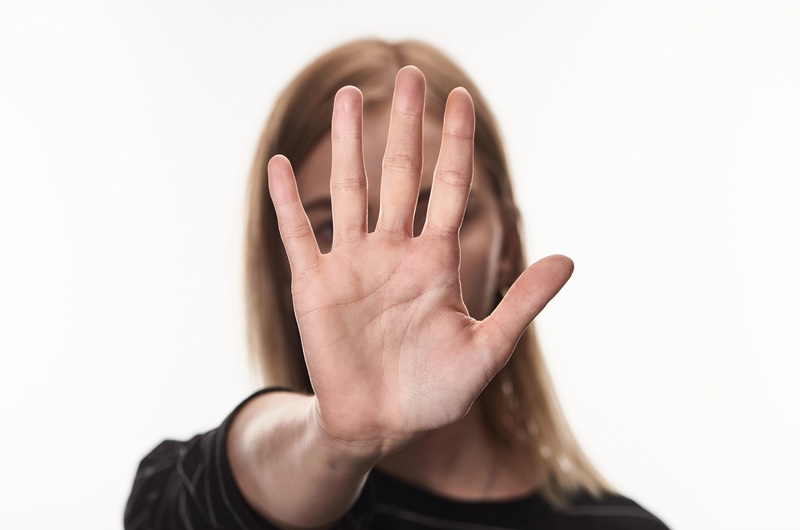What Are The VAWA Immigration Requirements?
The VAWA immigration requirements outline the criteria for individuals seeking protection and legal status under the Violence Against Women Act (VAWA) in the United States. These requirements establish eligibility for survivors of domestic violence, abuse, or extreme cruelty, enabling them to pursue a self-petition process that prioritizes their safety and well-being.

Who Is Eligible For VAWA Self-Petition?
The immigration process for families frequently includes American citizens and permanent residents seeking permission. They do this to bring their non-U.S. citizen family members to the United States.
However, some people may misuse this process to control and harm their non-U.S. citizen family members. The Violence Against Women Act lets abused non-U.S. citizens ask for permission to stay in America without the abuser’s involvement.
Moreover, spouses, parents, and children of U.S. citizens or permanent residents can apply this way. If approved, they can proceed to apply for a Green Card to live in the country.
Requirements To Apply For A VAWA Self-Petition
In order to apply for a VAWA self-petition, individuals must fulfill specific criteria established by the U.S. immigration system. Ensuring eligibility underscores the opportunity for survivors to seek justice and secure a safer future for themselves and their families. One of the eligibility requirements is a family relationship with the abuser.
You must have a special relationship as a:
- Husband, wife, or former spouse of a U.S. citizen or permanent resident who mistreated you.
- Child of a U.S. citizen or permanent resident parent who treated you badly.
- Parent of a U.S. citizen son or daughter who is 21 years old or older and maltreated you.
The bad treatment involves physical or emotional abuse by your U.S. citizen or permanent resident family member while you were in this special relationship. If you’re a spouse, you can also apply if your U.S. citizen or permanent resident spouse abused your child.
You either lived with or presently reside with a U.S. citizen or permanent resident family member who treated you badly. Additionally, you have demonstrated good moral character and have conducted yourself appropriately.
If you’re applying as the spouse of an abusive U.S. citizen or permanent resident, you must also show that you got married for real reasons and not just to get around immigration laws.
Other VAWA Self-Petition Eligibility Conditions
In certain situations, you might still qualify for the VAWA self-petition. This is possible even if your abusive family member gave up their U.S. citizenship or resident status or if they passed away.
If you’re living outside the U.S. when you apply for the self-petition, you need to show one of the following along with the earlier requirements:
- Your violent family member works for the U.S. government.
- Your abusive family member serves in the U.S. military.
- You experienced serious harm in the United States.
What Is Form I-360 For VAWA Self-Petitions?
This document is crucial paperwork in applying for immigration benefits under the Violence Against Women Act. Form I-360, or the Appeal for Amerasian, Widow(er), or Special Immigrant, is submitted to the U.S. Citizenship and Immigration Services (USCIS) to initiate the application process. It is important to note that the policy extends its defense to women and men who have suffered acts of violence.
Form Completion
When completing form I-360, applicants must provide detailed information about their background, immigration status, and abusive relationship. It is crucial to complete the sheet accurately and thoroughly, as any omissions or errors can potentially delay or adversely affect the application process. Therefore, seeking assistance from an immigration attorney enhances the chances of a successful plea.
Review & Validate
Once USCIS receives the petition, they will review and accept it if it meets the eligibility criteria. After the request is validated, the petitioner can apply for an adjustment of status to obtain permanent residency.
Can A Divorced Spouse Seek Relief By Filing Form I-360?
 Starting from October 28, 2000, you have the option to submit Form I-360 if your marriage ended within two years before applying. You need to demonstrate that the end of your marriage resulted from abuse or severe mistreatment.
Starting from October 28, 2000, you have the option to submit Form I-360 if your marriage ended within two years before applying. You need to demonstrate that the end of your marriage resulted from abuse or severe mistreatment.
If your spouse mistreated you, and you can’t prove this connection, you might still be eligible for permission to stay. This is possible by meeting the requirements for the abused spouse cancellation of removal.
To be eligible for this, you must meet the same requirements as if you were filing a self-petition. You also need to have been living in the United States for three years before applying for permission to stay. Additionally, you must show that being sent away from the United States may result in significant and severe difficulties for you or your child.
Your application will be rejected if you get married again before your Form I-360 is approved. But if you get married again after the approval of your Form I-360, it won’t affect the approval.
Do You Need To Remain Married Until The Approval Of Form I-360?
From October 28, 2000, onward, you have the option to submit Form I-360 if you remain wed to your abusive partner. Additionally, certain circumstances allow for application even if you are no longer married to an abusive spouse. If your marriage status has changed before applying with Form I-360, it must fall under one of the listed scenarios:
- You believed your marriage to your violent spouse was legally valid, yet its legitimacy is questioned due to your spouse’s existing marriage to another person.
- If your spouse has passed away within two years of your seeking assistance or lost their U.S. citizenship or legal resident status due to a domestic violence incident, these circumstances also apply.
- Additionally, if your marriage to the abusive spouse concluded within two years before your application, and a correlation exists between the marriage’s termination and the harm or extreme cruelty you endured, this situation qualifies.
Nonetheless, the current regulations of USCIS may not incorporate these legal modifications and may continue to stipulate the need for marriage during the application. USCIS is bound to adhere to the law, and you are now exempt from the necessity of being married to your abusive spouse while applying. Seeking guidance from an immigration lawyer or a legal team is recommended for better clarity.
How Can A VAWA Lawyer Help You With Self-Petition?
Proper documentation is crucial in the self-petition process. A VAWA lawyer can help you collect the necessary evidence. This includes police reports, medical records, witness statements, and other relevant documents that support your abuse claims.
Meeting the specific requirements outlined in VAWA is essential for a successful self-petition. An experienced attorney ensures that your application is complete, accurate, and adheres to all regulations, minimizing the risk of delays or denials due to technical errors.
Beyond the legal aspects, a VAWA immigration lawyer can also be a source of emotional support during a challenging time. They understand the sensitive nature of domestic violence cases and can provide a safe space for you to share your experiences.
The VAWA immigration requirements outline the conditions for individuals seeking protection and legal status under the Violence Against Women Act (VAWA) in the United States. These criteria grant eligibility to survivors of domestic violence, abuse, or extreme cruelty, empowering them to initiate a self-petition process that prioritizes their safety and well-being.
Typically, the immigration process for families involves U.S. citizens and permanent residents sponsoring non-U.S. citizen relatives to enter the country. However, some misuse this system to control and harm their non-citizen family members.
The VAWA allows abused non-U.S. citizens to independently seek permission to remain in the United States without the abuser’s involvement. Parents, children, or spouses of U.S. citizens or permanent residents can apply through this avenue, potentially obtaining a Green Card for residency.
Applicants for VAWA self-petition must meet specific U.S. immigration criteria, ensuring survivors can pursue justice and secure a safer future. The requirements encompass being in a special relationship involving spousal or parent-child ties. This includes experiencing abuse while living with a U.S. citizen or permanent resident family member, demonstrating good moral character, and more.
The application process involves submitting Form I-360 to the U.S. Citizenship and Immigration Services (USCIS), signaling the initiation of the entry process. Survivors can also qualify for abused spouse cancellation of removal, potentially allowing them to stay in the country if specific requirements are met.
A VAWA lawyer plays a crucial role in this process, assisting with documentation, adhering to requirements, and providing emotional support during this challenging journey.
Contact A U.S. Immigration Attorney Today!
Categories
How To Find Us
What Our Clients Say
“This Lawfirm is great, very professional and helpful. I love that they are always in communication and always available for when you have questions . 100% recommended by me and my family. Thank you Lincoln-Goldfinch Law – Abogados de Inmigración”





